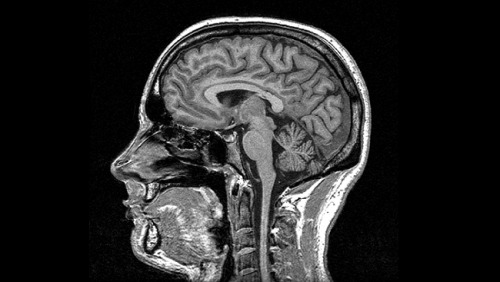Gray or grey matter. However you spell it, if you meditate, oh, it’s a-changin’. And that’s what a team of Harvard researchers is telling us. The most astounding part? Our brain’s gray matter can change in shape and size (for the better, mind you) in just eight weeks of practicing meditation.
Signs of improvement showed up in memory, sense of self, empathy, and stress, according to the study led by Harvard researchers at Massachusetts General Hospital. Using MRIs (magnetic resonance imaging) the researchers were able to take pictures of the participants’ brains two weeks before and two weeks after an eight-week Mindfulness-Based Stress Reduction (MBSR) Program at the University of Massachusetts Center for Mindfulness (which, side note, has actually been running since 1979).
What the researchers saw was increased gray matter density in the hippocampus, the part of the brain known to be the major area for learning and memory, as well as in parts of the brain connected to self-awareness, compassion, and introspection.
What’s also fascinating is that participants who reported experiencing lower levels of stress also showed decreased gray matter density in the amygdala, which is the area of the brain known to be largely responsible for anxiety and stress.
“This study demonstrates that changes in brain structure may underlie some of these reported improvements and that people are not just feeling better because they are spending time relaxing,” said senior author Dr. Sara Lazar of the MGH Neuroimaging Research Program and a Harvard Medical School instructor in psychology.
Prior to this study, scientists recognized the benefits of meditation on the brain like increased focus and emotional balance, but could not pin the results as a direct cause of meditation.
For this study there were 16 participants (besides the control group) who practiced mindfulness exercises every day for the eight weeks based on “on nonjudgmental awareness of sensations, feelings, and state of mind” and which also incorporated mindful yoga and movement. They were provided audio recordings for guided meditation in their at-home practice which they were asked to do on their own daily. They also went to weekly two and half hour meetings where they participated in the mindful meditation practices as a group. In the end, study participants reported spending an average of 27 minutes each day practicing mindfulness meditation. Not too bad for making your brain better, eh?
We keep learning more and more about the positive effects meditation has on the brain, the body and even our cells. These studies are pretty cool, but perhaps seem to be just scratching the surface.
“It is fascinating to see the brain’s plasticity and that, by practicing meditation, we can play an active role in changing the brain and can increase our well-being and quality of life,” said first author Dr. Britta Holzel, a research fellow at MGH and Giessen University in Germany.
“Other studies in different patient populations have shown that meditation can make significant improvements in a variety of symptoms, and we are now investigating the underlying mechanisms in the brain that facilitate this change.”
The findings have been published in the journal Psychiatry Research: Neuroimaging.
This video from the University of Massachusetts Center for Mindfulnessthe shows what it’s like to take their eight-week Mindfulness-Based Stress Reduction (MBSR) Program. Read more about the program here.
From: Yoga Dork

